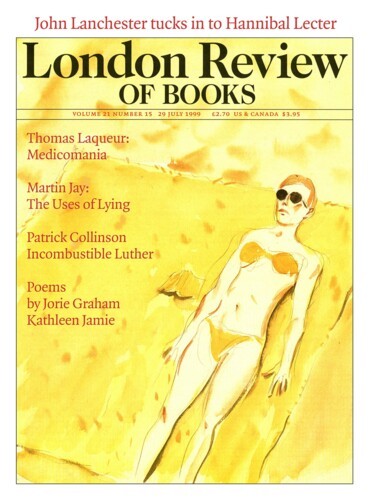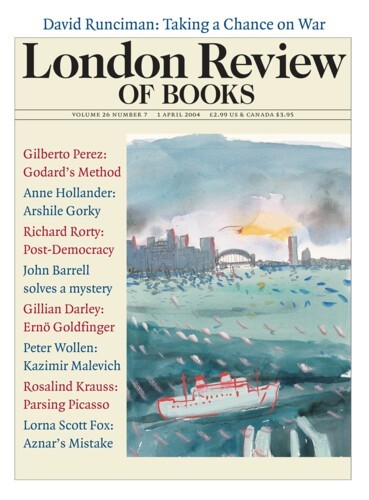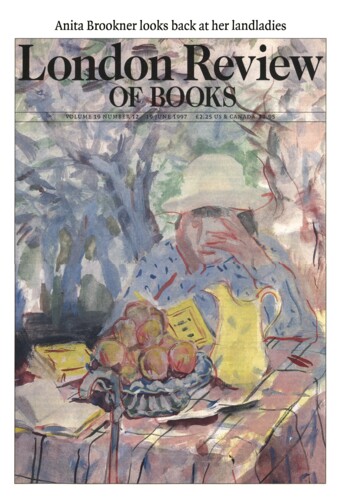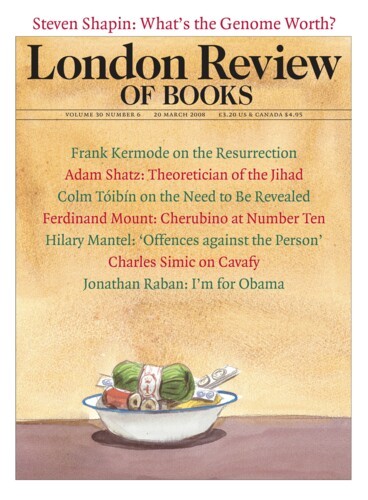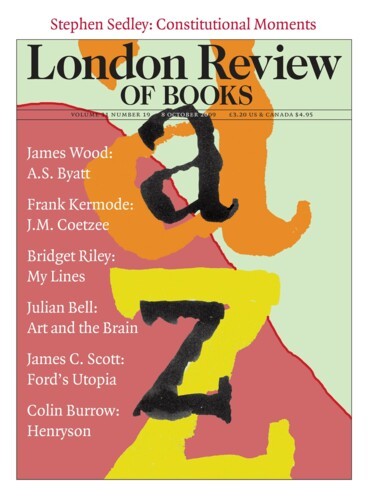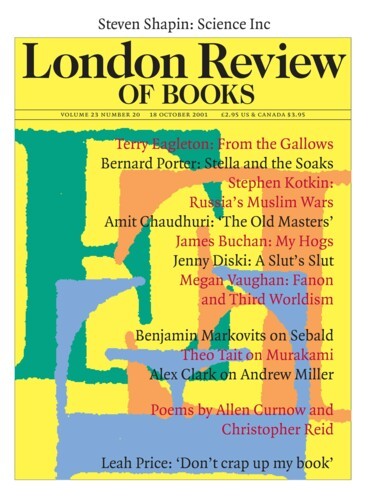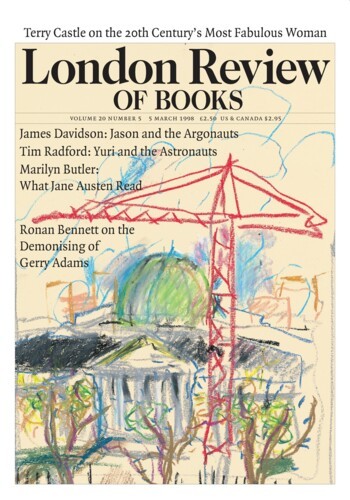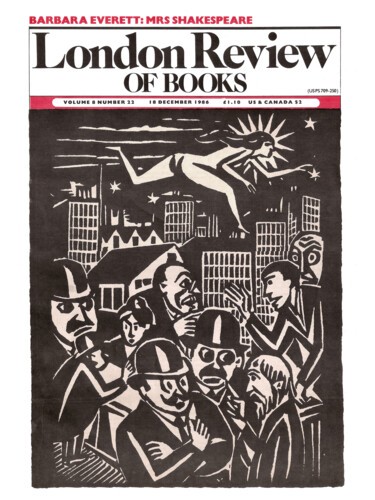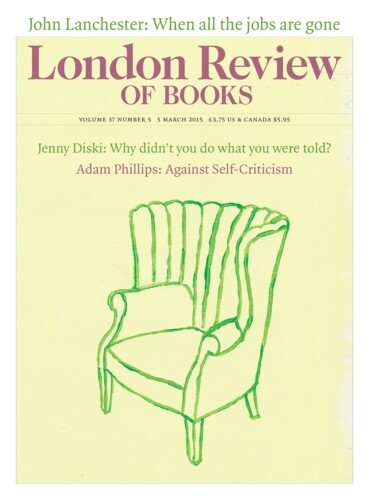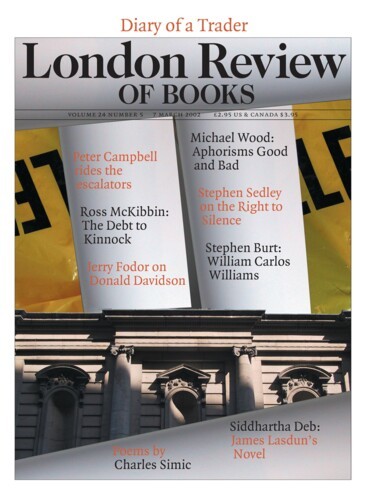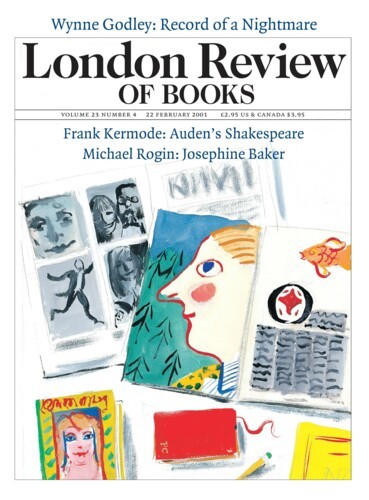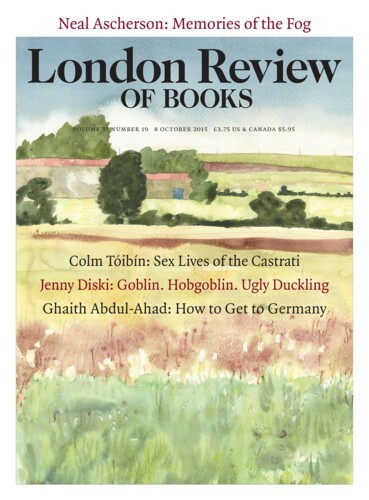Diary: Brussels
Mary-Kay Wilmers, 29 July 1999
I was born, not long before the Second World War, in the United States, where until the age of nine I lived in a succession of different towns and states, of which New York was the last, the place from which I left the country for good. I didn’t know at the time that we weren’t going back; and it was only later that it occurred to me that I’d spent the rest of my childhood in some sort of exile.
